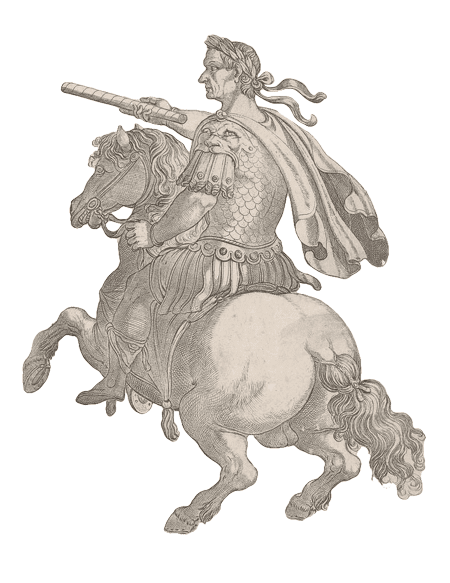It was for the sake of others that I first commenced writing biographies; but I find myself proceeding and attaching myself to it for my own; the virtues of these great ones serving me as a sort of looking-glass, in which I may see how to adjust and adorn my own life.
Plutarch (Life of Timoleon)
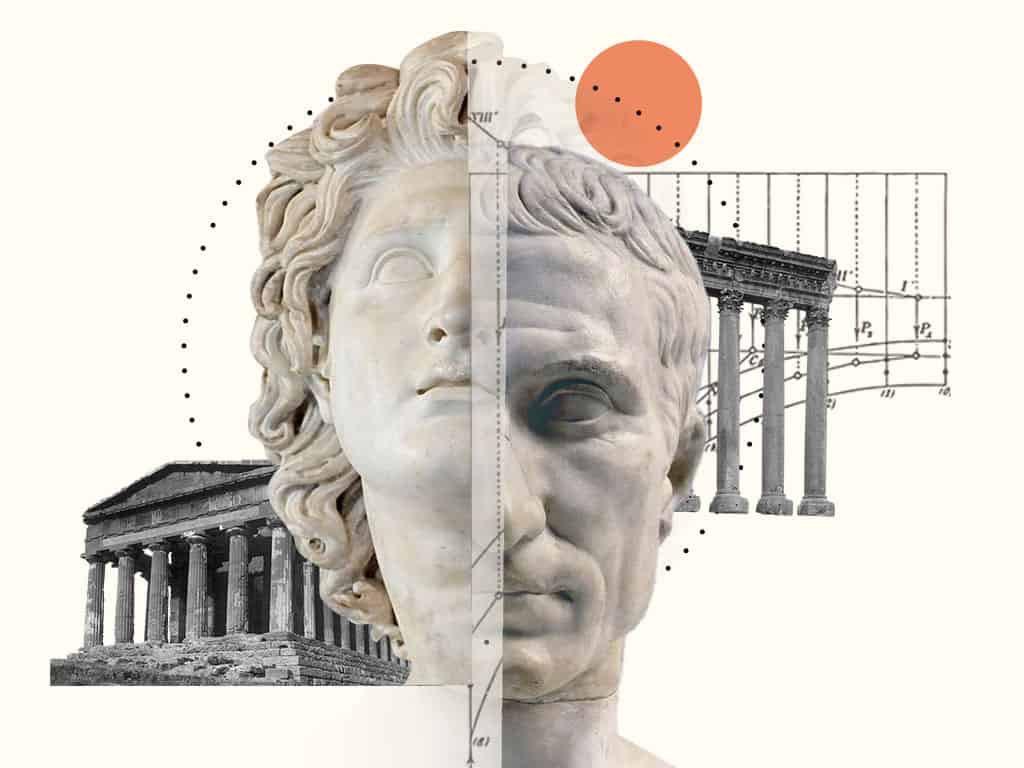
Parallel Lives
Plutarch
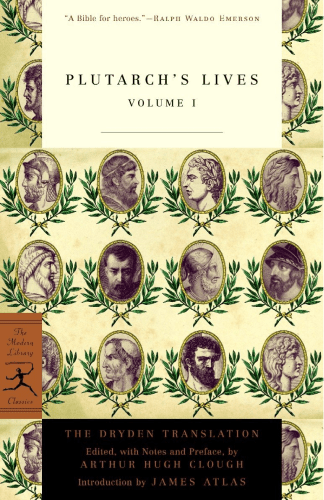
good, free, and relatively modern online translation is that of Bernadotte Perrin, from which the quotations here are taken. It is available at a site hosted by the University of Chicago: Plutarch • Parallel Lives (uchicago.edu) A reliable and inexpensive paperback version is published by Penguin Classics. For better or for worse, depending upon the nature of your interest in Plutarch’s project, Penguin arranges the lives in chronological order and thus separates each life from its parallel. The Penguin translation is by John Dryden, edited and updated by Arthur Hough. ISBN 9780375756764
..."Parallel Lives of the Noble Greeks & Romans" is not so much to present history as it is to study character.
Plutarch’s overall project in the Parallel Lives of the Noble Greeks and Romans is not so much to present history as it is to study character. The life of each noble Greek is presented alongside a parallel life of a noble Roman of the same type: for instance, the conqueror Alexander the Great is paired with Julius Caesar, and the orator/statesman Demosthenes with Cicero. For most of the pairs a brief essay giving Plutarch’s thoughts on what the pairing illustrates is also extant. Many more modern editions, including the Penguin, prefer to group the lives chronologically. Plutarch is a wonderful storyteller, and though the language of all the English translations is a bit archaic, many of the lives are very engaging. It’s probably most interesting to students to first encounter Plutarch through the life of someone of whom they have heard, and for that reason this page will focus on his Life of Julius Caesar. Plutarch takes us from his childhood through his rise to power and conquest of Rome, to his assassination.
Why This Text is Transformative?
Through the prism of his story, students can consider a variety of questions about power, ambition, various forms of government, and the relationship of people and their leaders, that bear upon our current political situation.
Caesar is a truly compelling character, whose career brought Rome almost to the pinnacle of its power, but also brought about the end of the republic and the beginning of empire. Through the prism of his story, students can consider a variety of questions about power, ambition, various forms of government, and the relationship of people and their leaders, that bear upon our current political situation. The narrative draws students in more effectively than most more abstract philosophical consideration of such issues, while the historical distance can also allow a more thoughtful consideration and exchange of views around these issues than may be possible when discussing the contemporary situation more directly.
A Focused Selection
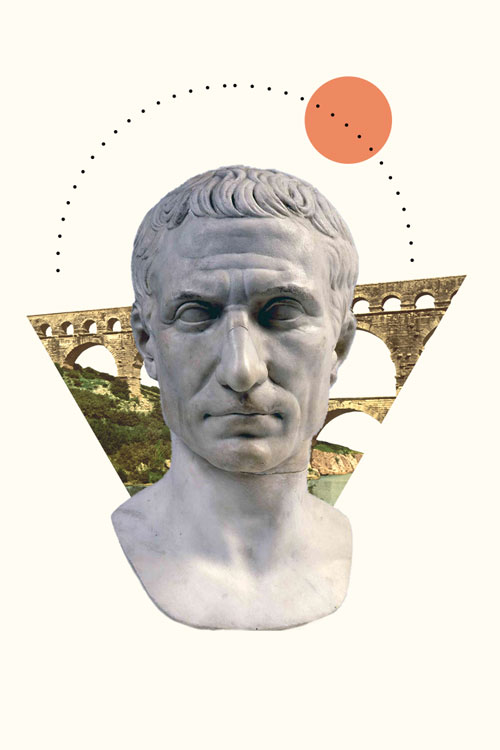
Some sections of the Life of Caesar involve military campaigns and political maneuverings within the structure of the Roman Republic that students may find difficult to follow, but sprinkled throughout the narrative are anecdotes that Plutarch believes give insight into the character of Julius Caesar. These more personal interludes are excellent starting places for discussion. In paragraphs 2 – 4, we read first of Caesar’s capture, as an adolescent, by a group of pirates who hold him for ransom. He laughs at them for not realizing the worth of their captive and demanding too low a ransom amount, and volunteers to get them more than twice as much. While awaiting the arrival of his friends with the money, he jokes with the pirates, ordering them about as if they were his servants and threatening to have them killed if they disobey him. After the ransom has been paid and he is freed, he returns to the island and actually does have the pirates all killed, as he had threatened to do when they thought he was joking. This anecdote is followed by a brief account of his rise to prominence in Rome by virtue of his lavish hospitality. Near the end of paragraph four we read that Cicero, observing him, begins “to see beneath the surface of Caesar’s public policy and to fear it, as one might fear the smiling surface of the sea.”
These three short paragraphs are in themselves enough to generate productive discussion. To deepen the conversation, it can be helpful to turn to some of the passages that illustrate Caesar’s undeniable excellence as a military leader and the genuine devotion he inspires in his men. Despite health problems, he does not allow himself an easy life but follows them to the front in battle and confronts the hardships of war. At times he treats those he conquers with real magnanimity. Paragraphs 17 effectively presents this side of his character, ending with an anecdote in which he and his men having been driven by as storm to take shelter in a hut with room for only a single person, he says that “honors must be given to the strongest, but necessities to the weakest,” and insists that he himself will sleep on the porch so that another can have shelter.
1) What makes Caesar so compelling? Do you admire him? What is so attractive about following a strong and charismatic leader?
2) At the end of paragraph four, Cicero is beginning to see danger in Caesar but also finds it hard to believe that this man could be contemplating something as audacious as the overthrow of the Roman constitution. From what we have read so far, what makes it difficult to believe such a thing about Caesar? Is it difficult in general to take seriously the idea that someone might have a plan of such magnitude and consequence in mind? Why or why not?
3) Caesar is a person of enormous talent in many areas, as well as apparently limitless ambition. Such people are capable of accomplishing great things – but are they also inherently dangerous to the political/social order? How does greatness of this sort find a place in a democratic republic?
4) Do you regard yourself as ambitious? How do we (or can we) draw the line between negative and positive manifestations of ambition? Is there anything wrong with desiring power?
Building Bridges
A Recommended Pairing

An obvious bridge between this ancient text and early modernity is Shakespeare’s Julius Caesar, which takes most of its narrative from Plutarch. Considerations of the exercise of power, such as Machiavelli’s Prince, also pair well with the Life of Caesar and many of the other lives Plutarch presents.
Supplemental Resources
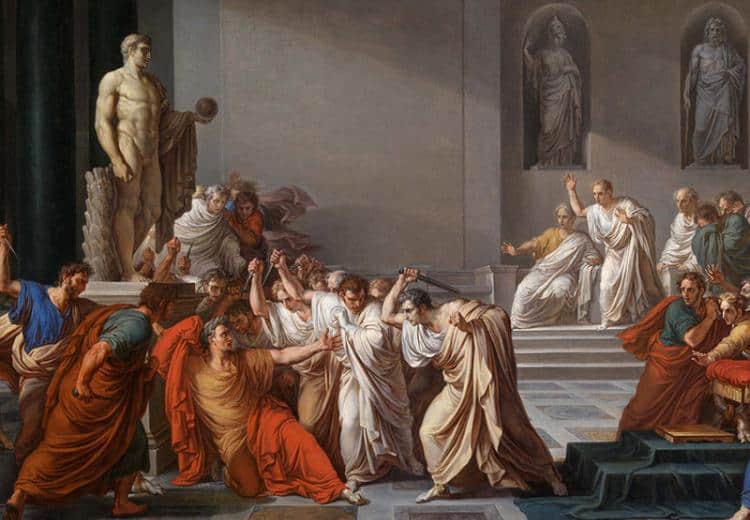
Students who have encountered Dante may be interested to recall that Dante places Caesar among the virtuous pagans in limbo. References to Julius Caesar abound in popular culture. In addition, there are clear connections between Caesar’s story and many accounts of the rise of charismatic leaders or dictators.
Text Mapping
Discipline Mapping
History
Humanities
Political Science/Government
Page Contributor


